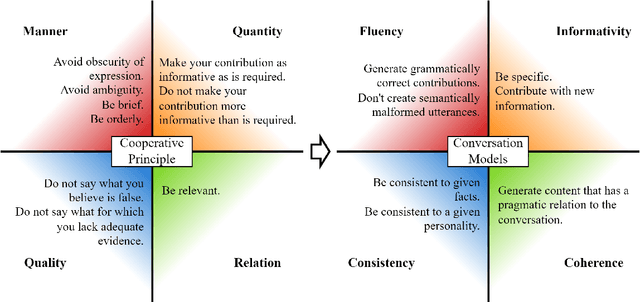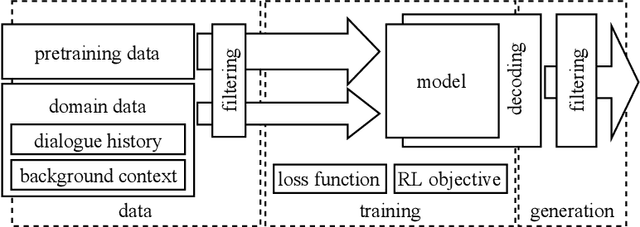Neural Conversation Models and How to Rein Them in: A Survey of Failures and Fixes
Paper and Code
Aug 11, 2023

Recent conditional language models are able to continue any kind of text source in an often seemingly fluent way. This fact encouraged research in the area of open-domain conversational systems that are based on powerful language models and aim to imitate an interlocutor by generating appropriate contributions to a written dialogue. From a linguistic perspective, however, the complexity of contributing to a conversation is high. In this survey, we interpret Grice's maxims of cooperative conversation from the perspective of this specific research area and systematize the literature under the aspect of what makes a contribution appropriate: A neural conversation model has to be fluent, informative, consistent, coherent, and follow social norms. In order to ensure these qualities, recent approaches try to tame the underlying language models at various intervention points, such as data, training regime or decoding. Sorted by these categories and intervention points, we discuss promising attempts and suggest novel ways for future research.
 Add to Chrome
Add to Chrome Add to Firefox
Add to Firefox Add to Edge
Add to Edge